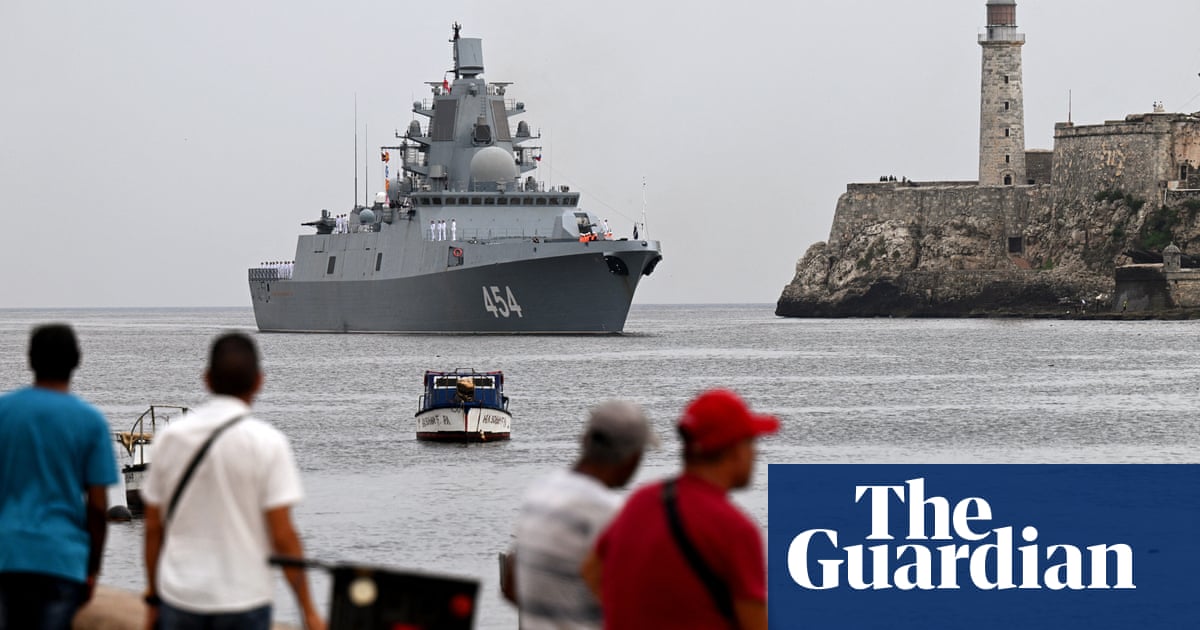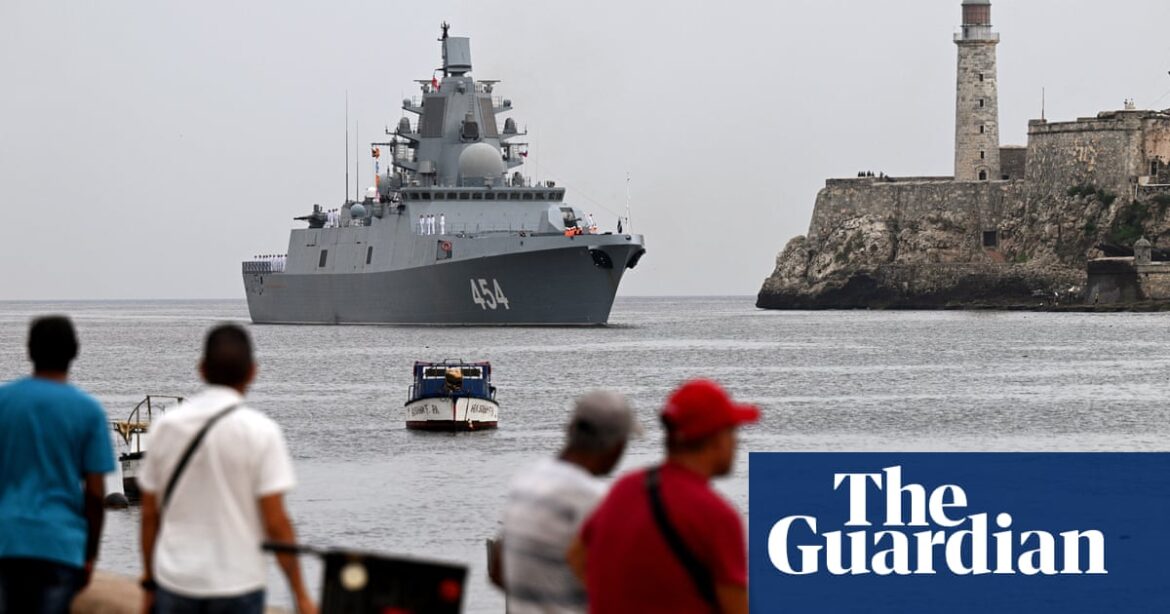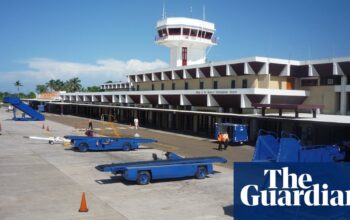
A fleet of Russian warships has arrived in the bay of Havana, in a visit seen as a show of strength amid tensions with the west over support for Ukraine.
Four vessels, including the nuclear-powered submarine Kazan and the frigate Admiral Gorshkov, entered Havana Bay early on Wednesday, where they offered a 21-gun salute that was reciprocated from the battlements of La Cabaña, the fortress where Che Guevara once had his office.
En route to Cuba this week, the Gorshkov and the Kazan had conducted missile drills in the Atlantic, testing precision missiles at targets at a range of more than 600km (370 miles), according to Russia’s ministry of defence.
The ships were met by a sparse Cuban crowd on Havana’s famous corniche, the Malecón, but there was a strong showing from Russian diplomats and their families who waved Russian flags and shouted: “Russia! Russia!”
The visit was announced last week by Cuban officials who said that such visits from friendly countries were standard practice, that the Kazan carried no nuclear weapons and there was no threat to the region.
Havana is just 100 miles from Key West, Florida, and the timing of the visit suggests more than “standard practice”, said William Leogrande, a professor at American University.
“The visiting Russian warships are Putin’s way of reminding Biden that Moscow can challenge Washington in its own sphere of influence,” Leogrande told the AP.
Gustavo Rivero González had come to witness the arrivals. “It’s a once-in-a-lifetime situation,” he said. “I didn’t live through the 1962 [Cuban missile] crisis. We’re living in a moment when the powers are pushing at each other.”
The Kazan and Gorshkov are among Russia’s most modern warships, built in 2017 and 2018 respectively. The submarine is believed to be the quietest in the Russian navy, and the Russian admiralty has said the frigate is capable of carrying their latest Zircon hypersonic missiles.
The vessels, including the tanker Pashin and the rescue tug Nikolai Chiker left their home port in Russia’s Kola peninsula in mid-May.
The watching Russians were less keen to comment, directing a journalist to “speak to the ambassador”, while a Cuban man in a baseball hat depicting a Venezuelan warship said he couldn’t talk as he was a security official.
Antonio Martínez, who was trying to sell a three-peso note bearing Guevara’s face, was more vocal.
“It’s ridiculous,” he said. “There are five million Cubans in Miami. We’re much closer to the United States. And right now we are starving.”
Source: theguardian.com



